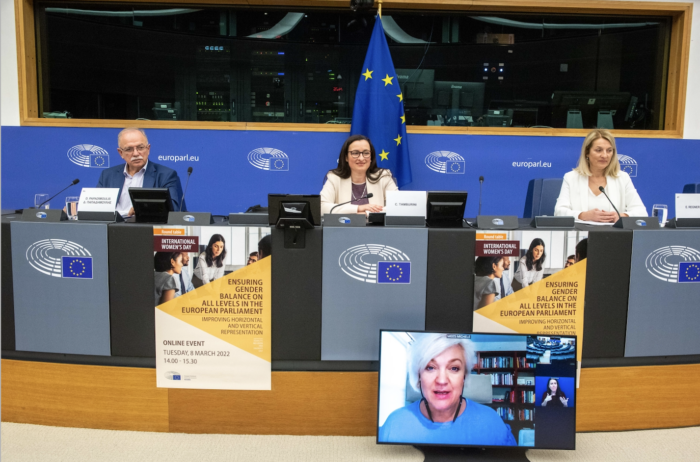The Progressive Post
Europe can be the leader of a just transition
By now we all know that climate change poses a threat to humanity and our planet. We have no choice. We urgently need a transition to a low-carbon economy and society. This is a necessity but we should also see it as an opportunity.
Technology and innovation will allow us to decouple growth and greenhouse gas [GHG] emissions: our economy in Europe has grown by 46% since 1990 while at the same time we reduced our GHG emissions by 24%. The other good news is that this transformation creates a high number of high-quality jobs. In 2014, nine million jobs were linked to the transition to a low carbon economy. By 2030, the number could double to about 18 million jobs, according to a study by the Commission. But none of this happens automatically or is automatically an inclusive process. It obliges all of us, politicians, managers, trade unionists, workers, researchers, teachers, all citizens to roll-up our sleeves and manage this transition – at all levels – to make it fair and acceptable for everyone.
When we adopted the Energy Union Strategy in February 2015, we stated already that change means disruption and a need to adjust. Many sectors of our economy, business models or job profiles will need to adjust. New business models will emerge with new technologies. People will need the right skills for this transition. And where this is not enough, social measures will be required. The challenge is to organise this transition, and to provide clarity and orientation for everyone affected by this transformation. This will allow us to anticipate, prepare and manage the changes.
A fair and inclusive transition
Many people are already preparing and thinking of the technologies, businesses and skills of the future. We must encourage them and support them. The role of social partners is crucial in this regard. They have the insight and experience on the ground that can help to build trust in this transition. Others will try to defend the status quo and work harder on avoidance than on ways of preparing for the future. But this will not help our economy and our general welfare in Europe. We must ensure instead that this transition is fair and inclusive, that it is for the benefit of our citizens and our future. Only by doing this will we be able to convince everyone to embrace this change. We see political backlashes around the world, and often, they are inspired by fear of change and a feeling of injustice. We cannot deny that change can have negative consequences for some, and we cannot deny that there is injustice. We must address these concerns and offer solutions that speak to everyone.
Europe as an actor and a facilitator
There are great examples of successful transformations here in Europe. We have regions that moved from agriculture to high-tech and others that were centres of traditional industries and are today centres of the new economy. Recent studies by FEPS or ETUC provide interesting case studies. We can learn from these examples and help other regions to find similar pathways, corresponding to their needs.
At the same time, the EU is already supporting the transition. We have EU funding instruments, which are important drivers for the transition in regions. The EU’s Cohesion Policy provides 69 billion euros for investments related to all dimensions of the Energy Union between 2014 and 2020: 29 billion for energy efficiency, renewables, co-generation, smart energy infrastructure and low-carbon research and innovation; 40 billion euros for sustainable urban mobility and other low-carbon transport such as rail, seaports and inland waterways.
It is also important to mention that at least 1.1 billion euros from the European Social Fund will be dedicated to improving education and training systems necessary for the adaptation of skills and for the creation of new jobs in sectors related to energy and the environment. The new EU Skills Agenda adopted last June foresees a “Blueprint” for cooperation on skills in specific economic sectors. It will encourage stakeholders to work together to identify skill requirements and address the challenges. Business-education partnerships as promoted through the Alliance for Apprenticeships or the European Pact for Youth can also help stimulate cooperation between partners in the green and renewable sectors and education and training providers. The Commission will therefore in the autumn launch a new call for proposals under Erasmus+ on VET-Business partnerships.
Energy Union
The idea of the Energy Union is to have a holistic approach and to create a policy mix that includes energy, climate, transport, industry, research, employment, finance, social and the economy. In addition to what we have already proposed (Emission trading system, low-emission mobility, security of supply, better interconnections), more legislative and non-legislative proposals will be presented soon. These include a reform of our European energy-efficiency policies in order to create jobs, growth and facilitate investment; a reform of the renewables legislation; and a new design of the electricity market, both to embrace the new technologies and needs of an energy system in transition, and to empower customers. A different but equally important proposal will be on governance: how do we ensure that Europe as a whole delivers and makes this energy transition a success? We want the Member States to adopt National Energy and Climate Plans. These plans should show the pathways that Member States plan to take towards 2030 and include a perspective until 2050. The plans should provide long-term vision and predictability for all stakeholders.




